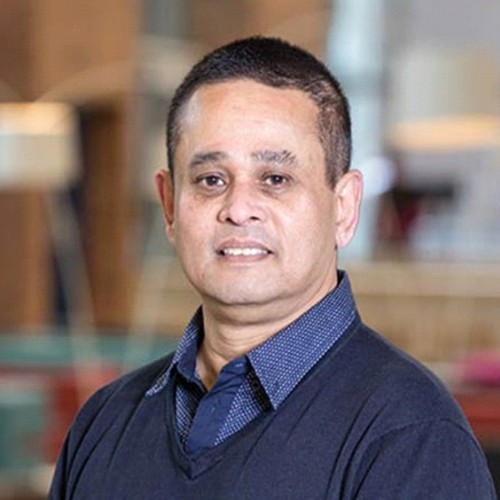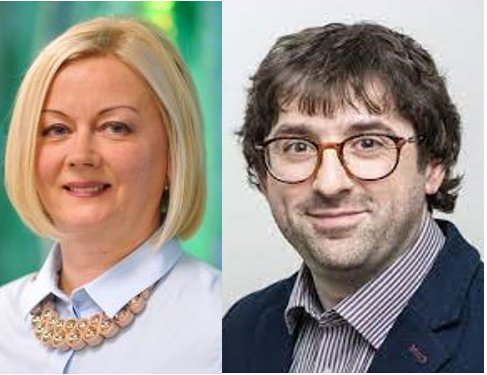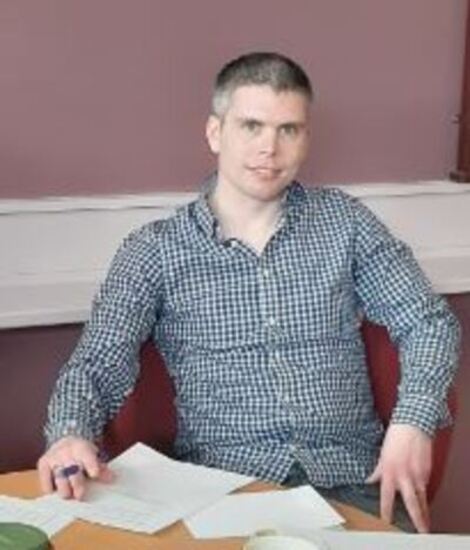Difference between revisions of "Instruction:E5697344-9c2f-474b-a460-0caa0f076bf6"
| Line 10: | Line 10: | ||
{{Instruction Step Trainee | {{Instruction Step Trainee | ||
|Instruction Step Title=Train-the-Trainer program in India | |Instruction Step Title=Train-the-Trainer program in India | ||
| − | |Instruction Step Text=The certified | + | |Instruction Step Text=The certified VIRT<sup>2</sup>UE trainer Shivadas Sivasubramaniam, Head of Biomedical Forensic Sciences at Derby University, is planning to deliver a Train-the-Trainer program at Kalasalingam Institute of Technology, in Krishnankoil (South India) by July-August. He will be able to expand the VIRT2UE program, from which he highlights that “the interactive nature of integrity-related issues makes the trainee understand and “own” ethical behaviour research integrity”. Besides, he received permission to offer training to all new starter PhD students and researchers, as a mandatory session in his home institution. With this, he aims to promote the importance of researchers “owning” integrity. “Most PhD scholars apply for the ethical approval just because it is expected from them. I want to change this culture into ethics forming the basis of research and its application”, Shivadas says. Now that he gained the VIRT<sup>2</sup>UE certification, he feels he has been recognized and given the authority to enhance future researchers in research integrity |
| − | |||
| − | at Kalasalingam Institute of Technology, in Krishnankoil (South India) by July-August. He will be able to expand the VIRT2UE program, from which he highlights that “the interactive nature of integrity-related issues makes the trainee understand and “own” ethical behaviour research integrity”. Besides, he received permission to offer training to all new starter | ||
[[File:Shivadas_Sivasubramaniam.png ]] | [[File:Shivadas_Sivasubramaniam.png ]] | ||
}} | }} | ||
{{Instruction Step Trainee | {{Instruction Step Trainee | ||
|Instruction Step Title=Training Ph.D. students in Educational Sciences in Latvia | |Instruction Step Title=Training Ph.D. students in Educational Sciences in Latvia | ||
| − | |Instruction Step Text=Zanda Rubene and Reinis Upenieks trained 26 | + | |Instruction Step Text=Zanda Rubene and Reinis Upenieks trained 26 PhD students in Educational Sciences as a team at the University of Latvia. According to Zanda, running the VIRT<sup>2</sup>UE program in teams is good to share responsibilities and support each other. Besides, the two trainers highly recommend collecting feedback and evaluations from the trainees. In their particular case, the Ph.D. students declared to be very satisfied after the training and concluded that the session had answered many questions. Although the trainees’ favourite exercise was the “Dilemma Game”, Rubene found particularly useful the “Self-declaration” and plans to keep using the tool with doctoral students. Finally, Rubene highlights the importance of training Educational Sciences researchers, since “it is an area where research is about people, very often about children. This is very sensitive from an ethical point of view |
[[File:LatviaTrainers.png ]] | [[File:LatviaTrainers.png ]] | ||
}} | }} | ||
| − | |||
| − | |||
{{Instruction Step Trainee | {{Instruction Step Trainee | ||
| − | |Instruction Step Title= Cross-Institutional Research Integrity Training in Ireland | + | |Instruction Step Title=Cross-Institutional Research Integrity Training in Ireland |
| − | |Instruction Step Text= The | + | |Instruction Step Text=The VIRT<sup>2</sup>UE trainer from Munster Technological University (Ireland), Seán Lacey, presents the initiative of Cross-Institutional Research Integrity Training (CIRIT), ran together with 7 other VIRT<sup>2</sup>UE trainers from other high education institutions (HEIs) in Ireland. The 8 VIRT<sup>2</sup>UE trainers led training seminars across Ireland as a platform to promote good research across their respective institutions. The seminars were very successful and as Lacey mentioned: “When advertised, the seminars were sold out in less than 24 hours”. Lacey, together with colleagues, trained to date 93 researchers in numerous seminars nationally. The feedback received from the training seminars is excellent but he acknowledges that although preparation for the seminars takes time, it is essential and the rewards are reaped and evident. In his particular training seminars, researchers at different stages of their careers were trained, something very much valued by the participants that promoted a shared learning community. |
| − | Lacey is planning to deliver more Research | + | Lacey is planning to deliver more Research Integrity trainings soon. In his own words, “continuous promotion of good research practices is important if we wish to have a positive impact on the research culture. This will not be done overnight, but bit by bit like a potential flywheel effect”. |
[[File:SL2.jpg]] | [[File:SL2.jpg]] | ||
}} | }} | ||
| − | |||
| − | |||
{{Instruction Remarks Trainee}} | {{Instruction Remarks Trainee}} | ||
{{Custom TabContent Close Trainee}} | {{Custom TabContent Close Trainee}} | ||
Revision as of 08:55, 22 July 2021
The Embassy's Newsletter for July 2021
Train-the-Trainer program in India
The certified VIRT2UE trainer Shivadas Sivasubramaniam, Head of Biomedical Forensic Sciences at Derby University, is planning to deliver a Train-the-Trainer program at Kalasalingam Institute of Technology, in Krishnankoil (South India) by July-August. He will be able to expand the VIRT2UE program, from which he highlights that “the interactive nature of integrity-related issues makes the trainee understand and “own” ethical behaviour research integrity”. Besides, he received permission to offer training to all new starter PhD students and researchers, as a mandatory session in his home institution. With this, he aims to promote the importance of researchers “owning” integrity. “Most PhD scholars apply for the ethical approval just because it is expected from them. I want to change this culture into ethics forming the basis of research and its application”, Shivadas says. Now that he gained the VIRT2UE certification, he feels he has been recognized and given the authority to enhance future researchers in research integrity

Training Ph.D. students in Educational Sciences in Latvia
Zanda Rubene and Reinis Upenieks trained 26 PhD students in Educational Sciences as a team at the University of Latvia. According to Zanda, running the VIRT2UE program in teams is good to share responsibilities and support each other. Besides, the two trainers highly recommend collecting feedback and evaluations from the trainees. In their particular case, the Ph.D. students declared to be very satisfied after the training and concluded that the session had answered many questions. Although the trainees’ favourite exercise was the “Dilemma Game”, Rubene found particularly useful the “Self-declaration” and plans to keep using the tool with doctoral students. Finally, Rubene highlights the importance of training Educational Sciences researchers, since “it is an area where research is about people, very often about children. This is very sensitive from an ethical point of view

Cross-Institutional Research Integrity Training in Ireland
The VIRT2UE trainer from Munster Technological University (Ireland), Seán Lacey, presents the initiative of Cross-Institutional Research Integrity Training (CIRIT), ran together with 7 other VIRT2UE trainers from other high education institutions (HEIs) in Ireland. The 8 VIRT2UE trainers led training seminars across Ireland as a platform to promote good research across their respective institutions. The seminars were very successful and as Lacey mentioned: “When advertised, the seminars were sold out in less than 24 hours”. Lacey, together with colleagues, trained to date 93 researchers in numerous seminars nationally. The feedback received from the training seminars is excellent but he acknowledges that although preparation for the seminars takes time, it is essential and the rewards are reaped and evident. In his particular training seminars, researchers at different stages of their careers were trained, something very much valued by the participants that promoted a shared learning community.
Lacey is planning to deliver more Research Integrity trainings soon. In his own words, “continuous promotion of good research practices is important if we wish to have a positive impact on the research culture. This will not be done overnight, but bit by bit like a potential flywheel effect”.


